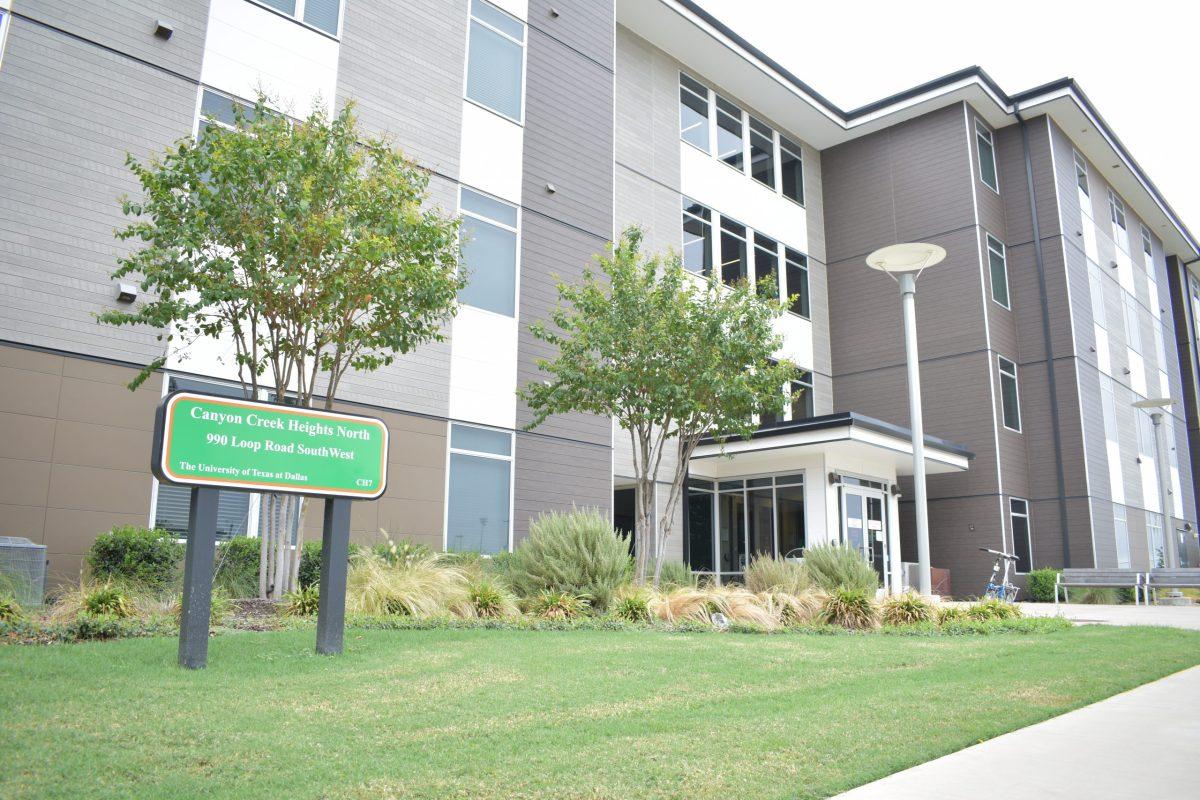UTD’s Residential Life office has allocated 100 suites at Canyon Creek Heights North to use as quarantine isolation units.
Associate Vice President of Student Affairs Matthew Grief – who oversees all of University Housing – said the units are reserved for students who are confirmed COVID-19 positive or presumptive positive. The dean’s office handles first contact with the student, who either self-reports or fills out the daily survey and has symptoms. The student is then extricated and transferred to an isolation unit, where they will stay for a 10-day period.
“We chose Canyon Creek Heights North because all of those units have their own air conditioning system, so there’s no air transfer between particular units,” Grief said. “And those are fully furnished units with full kitchens. It’s a comfortable space for students to isolate.”
Initially, when measures for on-campus isolation were still being decided in early summer, the plan was to set aside 10 one-bedroom University Village apartments, which were expected to meet the need for the predicted amount of cases on campus.
“But as the summer progressed we saw where cases were expanding,” Grief said. “We saw a lot of activity, and we were concerned that we didn’t quite have enough rooms available. We were really concerned about air transfer as one of the issues and that’s why we chose UV, but we didn’t have enough apartments in University Village to meet that need. And they are not furnished. We actually had to purchase furniture to furnish those 10 apartments for University Village.”
Students are not allowed to leave their units during the entirety of their stay and are monitored consistently. A University Housing staff member checks in on them daily about how they are feeling, their symptoms and to make sure they have everything they need. If a student has been tested on campus through the health center, they will follow up with them daily as well. Housing works closely with dining services to deliver meals to students three times a day, and cleaning services thoroughly sanitize the unit prior to and after its use.
One of the concerns about keeping students quarantined at CCHN was that regular residents would be in close proximity with presumed COVID positive students. Housing staff were unable to isolate one single floor for quarantine due to the late decision to use CCHN. Housing staff are making sure to regulate this in case a COVID positive student mistakenly breaches quarantine or walks into the common areas and hallways.
“What we’ve done this year is hired our own housekeeping staff,” Grief said. “They’re regularly cleaning throughout the day. What we did this year specifically COVID-related is we’ve hired an outside company, and they bring in people after the hours of four o’clock, and they’re constantly wiping down surfaces – common space elevators, door entries, those kinds of things – that are really the high touch areas.”
Grief said that most infected students will not come in contact with regular students because once they’re in a unit that’s where they’ll stay. But if the school or staff is made aware that a student left the building when they shouldn’t have, there are very serious consequences.
“We haven’t had anything yet, but what we would do is refer those students to the Dean of Students office who handles the one-on-one conversations with the students. And if a student regularly does not comply with our requests they could be asked to leave campus, because we want to keep the students who are here safe,” Grief said. “A student who puts other students in a serious situation is something we don’t want to happen, but we’re ready for it if it does.”
He said that compared to the cases in other schools, UTD has been quite effective in keeping their campus cases low. Students have been very responsive and understand the seriousness of the situation, even if they may be inconvenienced for 10 to 14 days.
“I think we’re putting a plan in place that is in the best position to meet the needs of our students if they come down with the virus, and then protect the other students as well,” Grief said.





